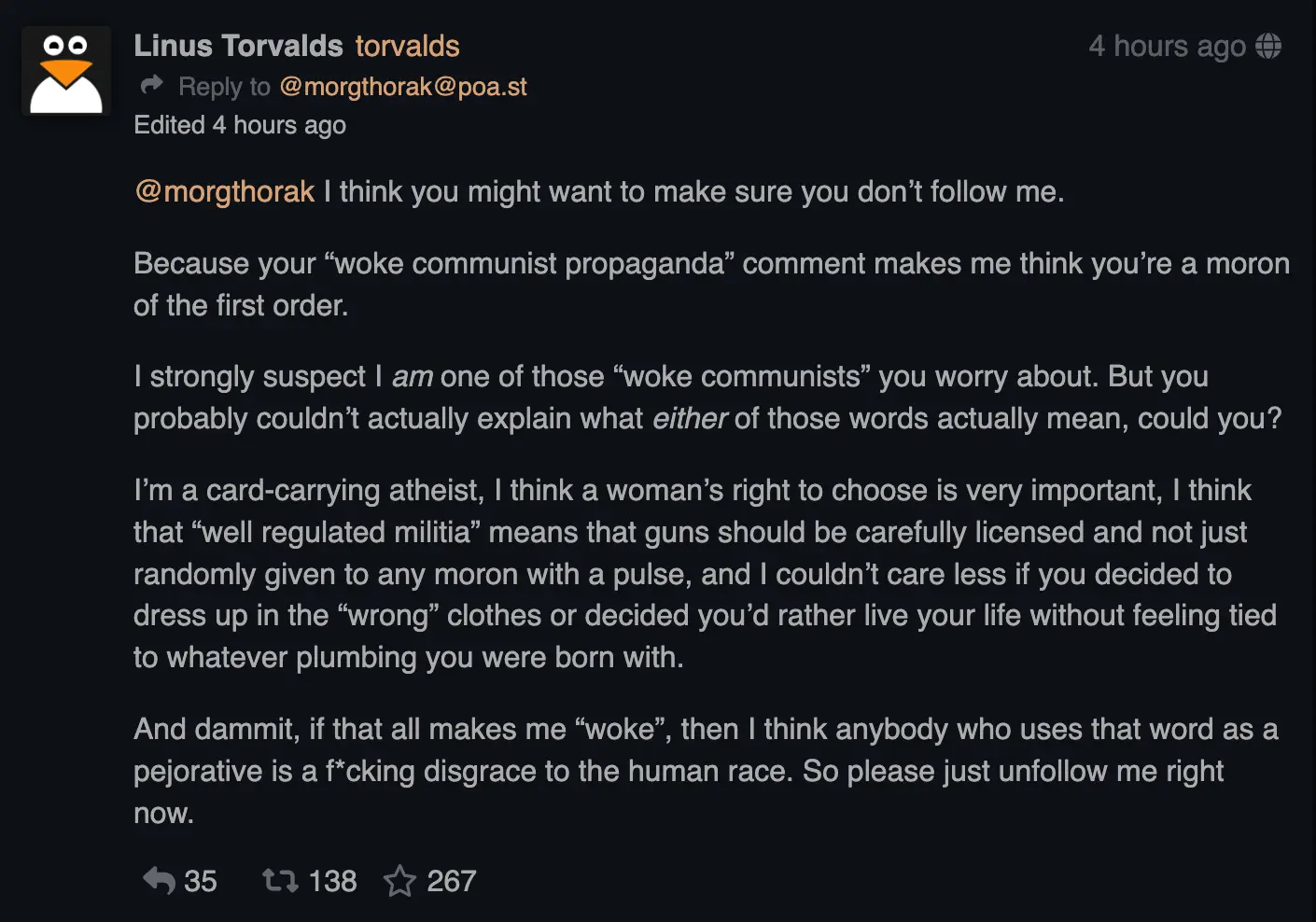Linux is a branch of development of the old unix class of systems. Unix is not necessarily open and free. FOSS is what is classified as open and free software. Unix since its inception was deeply linked to specific industrial private interests, let's not forget all this while we examine the use of linux by left minded activists. FOSS is nice and cool, but it is nearly 99.99% run on non-open and non-free hardware. A-political proposals of crowd-funding and diy construction attempts have led to ultra-expensive idealist solutions reserved for the very few and the eccentric affluent experimenters
Linux vs Windows is cool and trendy, is it? Really is it alone containing any political content? If there is such what is it? So let's examine it from the base.
FOSS, People, as small teams or individuals "producing as much as they can and want" offering what they produced to be shared, used, and modified by anyone, or "as much as they need". This is as much of a communist system of production and consumption as we have experienced in the entirety of modern history. No exchange what so ever, collective production according to ability and collective consumption according to need.
BUT we have corporations, some of them mega-corps, multinationals who nearly monopolize sectors of computing markets, creating R&D departments specifically to produce and offer open and free code (or conditionally free). Why? Firstly because other idiots will join their projects and offer further development (labor), contribute to their projects, for "free", but they still retain the leadership and ownership of the project. Somehow, using their code, without asking why they were willing to offer it in the first place, it is cool to use it as long as we can say we are anti/against/ms-win free.
Like false class consciousness we have fan-boys of IBM, Google, Facebook, Oracle, Qt, HP, Intel, AMD, ... products against MS.
Back when unix would only run on enterprise ultra-expensive large scale systems and expensive workstations (remember Dec, Sun, Sgi, .. workstations that were priced similarly to 2 brand new fast sportscars each) and the PC market was restricted to MS or the alternative Apple crap, people tried and tried to port forms of unix into a PC. Some really gifted hacking experts were able to achieve such marvels, but it was so specific to hardware that the examples couldn't be generalized and utilized massively.
Suddenly this genious Finn and his friends devised a kernel that could make most PC hardware available work and unix with a linux kernel could boot and run.
IBM saw eventually a way back into the PC market it lost by handing dos out to the subcontractors (MS), and saw an opportunity to take over and steer this "project" by promoting RedHat. After 2 decades of behind the scenes guidance since the projected outcome was successful in cornering the market, IBM appeared to have bought RH.
Are we all still anti-MS and pro-IBM,google,Oracle,FB,Intel/AMD?
The bait thrown to dumb fish was an automated desktop that looked and behaved just like the latest MS-win edition.
What is the resistance?
Linus Trovalds and a few others who sign the kernel today make 6figure salaries ALL paid by a handful of computing giants that by offering millions to the foundation control what it does. Traps like rust, telemetry, .. and other "options" are shoved daily into the kernel to satisfy the paying clients' demands and wishes.
And we, in the left are fans of a multimilioner's "team" against a "trilioner's" team. This is not football or cricket, or F1. This is your data in the hands of multinationals and their fellow customer/agencies. Don't forget which welfare system maintains the hierarchy of those industries whether the market is rosy or gray. Do I need to spell out the connection?
Beware of multinationals bearing gifts.
Yes there are healthier alternatives requiring a little more work and study to employ, the quick and easy has a "cost" even when it is FOSS.
.


